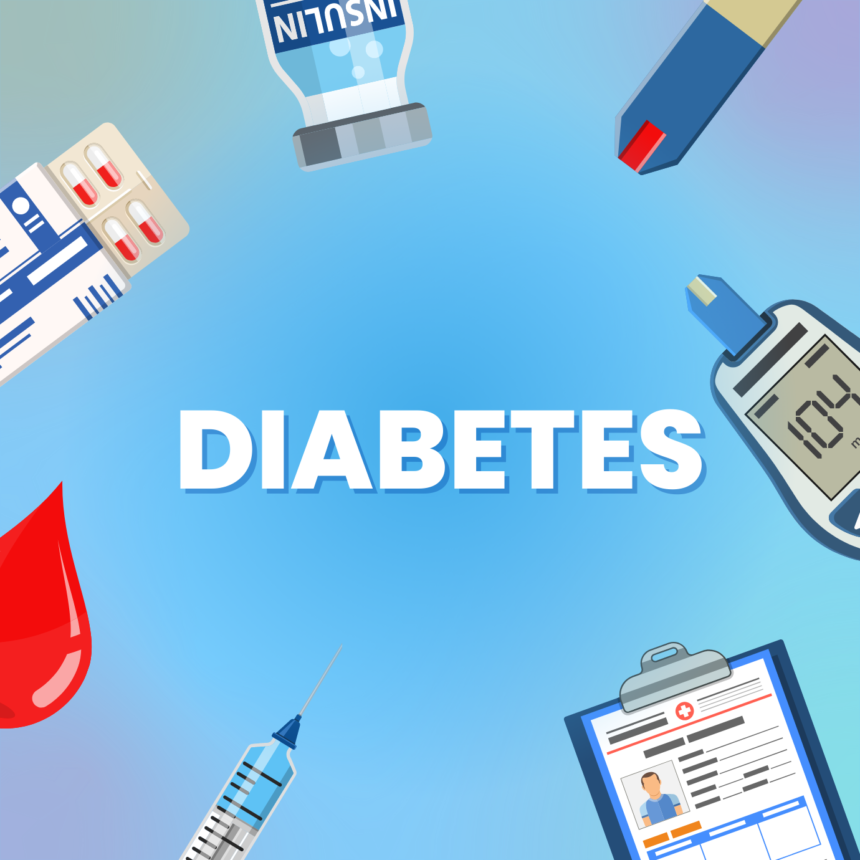Managing diabetes involves maintaining blood sugar levels within a target range to prevent complications and promote overall health. Here’s a comprehensive guide to diabetes management and blood sugar control:
1. Blood Glucose Monitoring:
Regularly monitor your blood glucose levels using a blood glucose meter. This helps you understand how your body responds to different foods, medications, and activities.
2. Healthy Eating:
Adopt a balanced and nutritious diet. Focus on whole foods, including fruits, vegetables, whole grains, lean proteins, and healthy fats. Avoid excessive consumption of sugary and processed foods.
3. Carbohydrate Counting:
Learn to count carbohydrates in your meals and match your insulin or medication doses accordingly. This helps maintain stable blood sugar levels after meals.
4. Regular Exercise:
Engage in regular physical activity, as exercise can help lower blood sugar levels and improve insulin sensitivity. Aim for at least 150 minutes of moderate-intensity exercise per week.
5. Medications and Insulin:
Take prescribed medications or insulin as directed by your healthcare provider. Never skip doses or adjust dosages without consulting them.
6. Insulin Management:
For individuals with type 1 diabetes or some with type 2 diabetes, insulin management is crucial. Learn proper insulin injection techniques and follow the recommended injection sites.
7. Continuous Glucose Monitoring (CGM):
Consider using CGM systems that provide real-time data on blood sugar levels. CGMs can help identify trends and patterns in your glucose levels, aiding in better management.
8. A1C Testing:
Undergo regular A1C tests to assess your average blood sugar levels over the past 2 to 3 months. Aim for an A1C level recommended by your healthcare provider.
9. Hydration:
Stay well-hydrated by drinking plenty of water throughout the day. Avoid sugary beverages that can spike blood sugar levels.
10. Stress Management:
Manage stress through relaxation techniques like meditation, deep breathing, yoga, or spending time in nature. Stress can impact blood sugar levels.
11. Regular Health Check-ups:
Schedule regular check-ups with your healthcare provider to monitor your diabetes, make necessary adjustments to your management plan, and identify any potential complications early.
12. Diabetes Education and Support:
Participate in diabetes education programs and support groups. Learning from experts and sharing experiences with others can be empowering.
13. Foot Care:
Check your feet daily for any cuts, sores, or signs of infection. Proper foot care is essential for individuals with diabetes to prevent complications.
14. Alcohol Moderation:
If you consume alcohol, do so in moderation and be aware of its effects on blood sugar levels. Always have alcohol with food to avoid hypoglycemia.
15. Sleep Quality:
Prioritize getting enough sleep each night, as lack of sleep can impact blood sugar control.
Remember, diabetes management is a personalized journey. Work closely with your healthcare team to create a comprehensive plan that suits your individual needs, lifestyle, and health goals. By making informed choices, staying consistent with your management plan, and taking proactive steps, you can lead a healthy and fulfilling life with diabetes.
